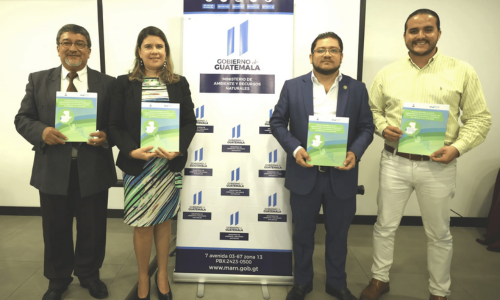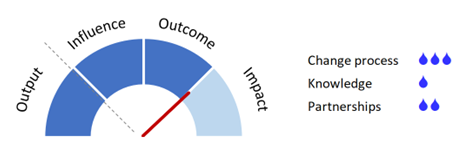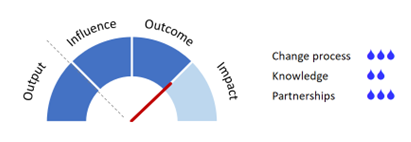Regional impact
Regional guidelines support transboundary water cooperation in Central America
Transboundary river basins comprise over 40 percent of Central America’s territory and are home to 21 million of its people. Improving transboundary water resource management is one of the most critical challenges for Central America. Implementing basin management agreements is essential for food security, improving livelihoods, and protecting ecosystems across the region.
To address this, GWP Central America and the Central American Commission on Environment and Development (CCAD) initiated a multistakeholder regional dialogue process to catalyse cooperation among transboundary countries. One outcome has been the development of regional guidelines that contribute to the sustainable development of the communities and natural resources of the transboundary basins.
GWP Central America, the Ministries of Environment and Foreign Affairs, and other organisations prepared and reviewed the initial draft document throughout 2022, and in June 2023, the Council of Ministers of CCAD validated the proposed guidelines. With their political backing, these guidelines can be implemented by countries in the context of each transboundary basin. The principles in these guidelines will also anchor GWP Central America’s future work as it implements the guidelines at a basin level.

Guatemala establishes an action plan for IWRM
Guatemala’s abundant freshwater resources are increasingly impacted by climate events such as floods and droughts, as well as landslides and mudslides. Pollution is also a significant issue, with contamination from industrial, domestic, and agricultural sources impacting users downstream. These issues limit the country’s ability to improve the livelihoods of the 55 percent of the population currently living in poverty.

Since 2017, GWP Central America and partners in Guatemala have been supporting the Ministry of Environment and Natural Resources in the development of an IWRM action plan. Through a series of multistakeholder consultations and workshops, the Ministry identified priorities to accelerate progress towards compliance with Sustainable Development Goal (SDG) 6. In November 2023, the Strategic Actions for the Implementation of the Integrated Management of Water Resources in Guatemala within the Framework of Indicator 6.5.1 of the SDGs was presented to the Technical Advisory Committee for Basins, which will be responsible for many of the actions.
Through the implementation of this plan, the Ministry will be better equipped to protect and enhance Guatemala’s natural resources, particularly its water resources, making the country more competitive at a global level and improving the quality of life of all Guatemalans.

Improved water monitoring contributes to better water governance
Water monitoring and the accessibility of water data for decision-making is a common hurdle in Central America. Countries need to know what the demand and availability of water is – especially considering regional vulnerabilities to extreme climate events like drought. Providing water in rural areas is particularly challenging.
In 2023, GWP Panama was asked by the Ministry of Environment to facilitate a consultation process, alongside GWP partners like the Ministry of Health and the Panama Canal Authority, to update and simplify the Manual for Permits and Concessions for the Use of Surface and Groundwater. This updated edition reflects recent changes in the legislation of the Rural Aqueduct Management Boards.
Launched during GWP Panama’s General Assembly on 30 November 2023, the manual will contribute to the understanding of the steps to be taken for water concessions, especially among the Management Boards, and improve information on water demand at the local level. The Ministry of Environment has already reported receiving more inquiries regarding the process of water concessions, demonstrating the manual’s rapid impact on civil participation in water management. Better information about water data at the basin level will support future decision-making and bolster water security.

